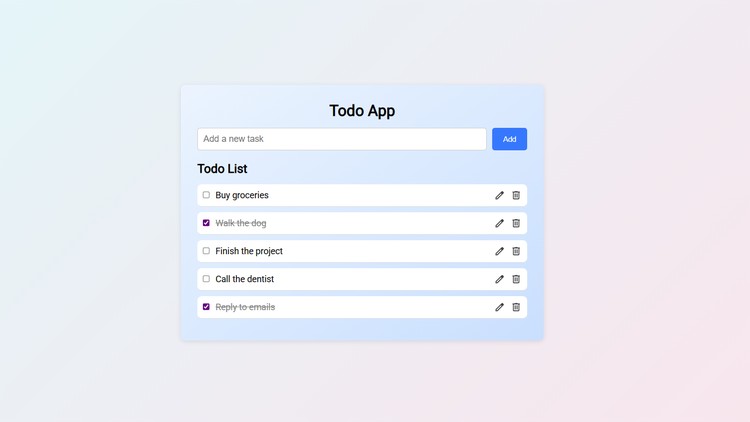
Learn by Building: Create a Todo App with JavaScript, HTML & CSS
What you will learn
Build a fully functional Todo web application using HTML, CSS, and JavaScript.
Apply essential web development concepts like DOM manipulation and event handling.
Structure a webpage using HTML and style it responsively with CSS.
Understand and implement basic JavaScript logic including variables, functions, and loops.
Add-On Information:
Note➛ Make sure your 𝐔𝐝𝐞𝐦𝐲 cart has only this course you're going to enroll it now, Remove all other courses from the 𝐔𝐝𝐞𝐦𝐲 cart before Enrolling!
- Embark on a practical journey to master fundamental web development technologies by constructing a tangible, useful application – a Todo list.
- Demystify the synergy between HTML for structure, CSS for visual appeal, and JavaScript for dynamic functionality, seeing firsthand how they collaborate.
- Gain hands-on experience with the Document Object Model (DOM), learning to dynamically add, remove, and modify content on a webpage without page reloads.
- Develop a keen understanding of event-driven programming, enabling your application to respond to user interactions like button clicks and input changes.
- Acquire the skills to create a responsive user interface, ensuring your Todo app looks and functions flawlessly across various devices and screen sizes.
- Explore the core building blocks of JavaScript, including how to manage data with variables, encapsulate logic with functions, and repeat tasks efficiently with loops.
- Learn to effectively manage application state, tracking the status of tasks (e.g., pending, completed) and updating the UI accordingly.
- Discover techniques for organizing your code for better readability and maintainability, a crucial skill for any developer.
- Build a robust foundation that prepares you to tackle more complex web development projects and further your programming career.
- Understand how to implement user input validation to ensure data integrity within your application.
- Explore the concept of event delegation for more efficient handling of multiple user interactions.
- Learn to implement basic data persistence (though this might be a simple client-side mechanism depending on the course’s depth, e.g., using local storage if covered).
- PROS:
- Immediate tangible results: You’ll have a working application by the end, boosting confidence and motivation.
- Skill integration: See how HTML, CSS, and JavaScript work together in a real-world context.
- Foundation for advanced topics: This project provides a stepping stone to learning frameworks and more complex architectures.
- CONS:
- Limited scope: The project focuses on core functionality, potentially lacking advanced features like user accounts or cloud storage without further exploration.
English
language